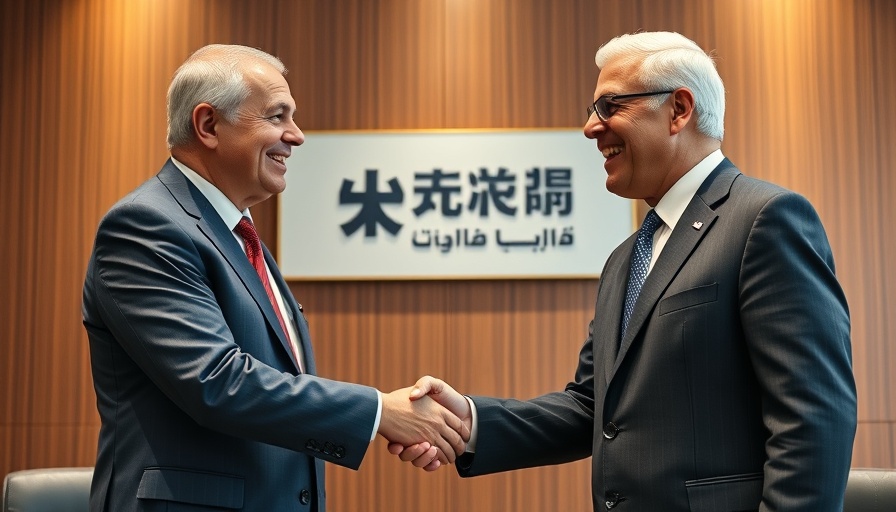
Strengthening Canada-India Relations: A New Chapter
In a significant move towards strengthening diplomatic relations, Canada and India have appointed new high commissioners to each other's countries. This appointment comes amidst ongoing discussions about foreign interference, which have been echoed by the Canadian Security Intelligence Service (CSIS). The new high commissioners, Christopher Cooter for Canada and Dinesh K. Patnaik for India, symbolize a step forward in a relationship that has seen its share of challenges.
The Background of a Complicated Relationship
The diplomatic ties between Canada and India have had peaks and valleys, with both nations working to navigate complex geopolitical dynamics. Historically, Canada's Indo-Canadian community has played a pivotal role in fostering friendship and cultural exchange. However, recent concerns about foreign interference have added layers of complexity to the diplomatic landscape. CSIS has identified India as a source of such interference on Canadian soil, sparking debates about national security and bilateral cooperation.
What the Appointments Mean for Both Nations
Foreign Affairs Minister Anita Anand highlighted the appointments as a method of “deepening diplomatic engagement” and restoring services that benefit Canadians. Christopher Cooter, who has over 35 years of diplomatic experience and a background in India, will be key in addressing issues that could threaten the relationship. Conversely, Patnaik's tenure will likely focus on reinforcing the cultural and economic bonds that have historically tied India and Canada together.
Economic Implications of the High Commissioner Appointments
Economically, the relationship between Canada and India holds considerable potential. Canada seeks to strengthen bilateral trade ties, particularly in technology, education, and clean energy. The high commissioners' appointments are not merely symbolic; they are a strategic effort to enhance economic ties that can lead to mutual benefits. With growing interest in Indian markets by Canadian businesses, a conducive diplomatic environment is crucial for fostering trade relations.
Counterarguments: Ongoing Concerns in the Diplomatic Sphere
While the appointments of new high commissioners symbolize progress, they do not negate existing concerns regarding Indian foreign influence in Canada. Political analysts argue that without addressing these issues, the foundation of “deepening” ties may remain fragile. Thus, both countries must navigate these waters carefully, ensuring that enforced diplomatic engagement does not overlook underlying security issues.
The Future of Canada-India Relations: A Shared Vision?
Looking forward, the appointment of new high commissioners opens a dialogue about potential collaborations. With the global economy shifting towards emerging markets, India represents a significant opportunity for Canada. Both nations are at a crossroads where strategic diplomacy could lead to enhanced cooperation in areas of mutual interest, including climate action and technology transfers. As Leaders Carney and Modi continue dialogues, their focus should remain on fostering trust while addressing critical security implications.
The Risk of Complacency in Diplomatic Engagement
There is a risk of complacency in how diplomatic ties are perceived—simply naming new high commissioners does not automatically translate into better relations. Stakeholders and citizens alike must remain vigilant about the broader implications of foreign influence, and the actions taken by their respective governments. Effective engagement requires a stringent examination of both nations' ambitions and reservations about one another.
In summary, the appointment of Christopher Cooter and Dinesh K. Patnaik signals a willingness from both nations to deepen their relationship. However, it also highlights the need to confront uncomfortable truths about foreign interference and security relations. As both nations step forward, a nuanced approach that balances economic aspirations with national security concerns will be paramount for fostering resilient bilateral ties.
 Add Row
Add Row  Add
Add 




Write A Comment